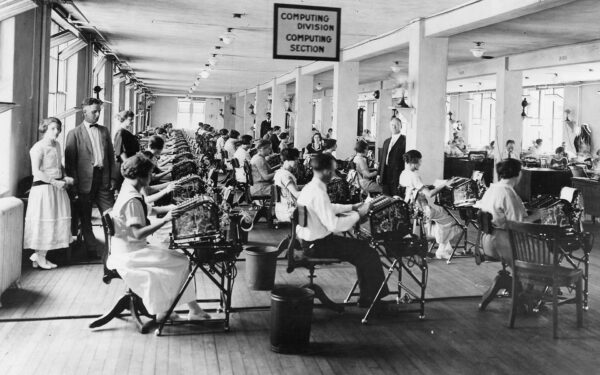Posts Tagged ‘workplace policies’

WHAT’S NEW FOR 2019 CALIFORNIA’S INCREASED PROTECTIONS AGAINST WORKPLACE HARASSMENT
In addition to the safeguards we have recently reported, the California legislature has enacted other significant “Me-Too”-inspired legislation effective January 1, 2019 to further prevent workplace harassment and encourage those targeted to prevail on their claims: Optional Bystander Intervention Training Authorized. Employers may, but are not required to, provide bystander intervention training and guidance to […]

CAUTIONARY TALES EPISODE 24
Unpaid Wages and Attempt to Evade Consequences Result in Seizure of Owners’ Assets Continuing to target restaurants and other industries under its Wage Theft Is a Crime program, the Division of Labor Standards Enforcement (DLSE) has taken action against the Mango Gardens restaurant chain. In 2015 following a referral from Asian Americans Advancing Justice-Asian Law […]

WHAT’S NEW FOR 2019 CALIFORNIA’S ZERO TOLERANCE PROTECTIONS AGAINST WORKPLACE HARASSMENT
The Expanding Meaning of “Zero Tolerance” The #MeToo movement has prompted the California Legislature to expand employer liability for harassment of employees and other specified persons effective January 1, 2019, making it far easier for workers to sue and bring their cases to trial. Release and Waiver Agreements Prohibited: Except for certain negotiated settlement agreements […]

CAUTIONARY TALES EPISODE 23
Construction Accidents Kill Two with Resulting Large Fines against the Employers Two recent Cal/OSHA cases underscore the need for effective safety measures, especially in hazardous conditions. Cal/OSHA cited two employers after an employee of each died as the result of a trench collapse. In April 2018, Bay Construction Co. was installing underground pump equipment at […]

WHAT’S NEW FOR 2019 IRS MILEAGE RATE INCREASING 3.5 CENTS EFFECTIVE JANUARY 1, 2019
The Internal Revenue Service (IRS) has announced its 2019 optional standard mileage reimbursement rate for employee business use of a personal vehicle, effective January 1, 2019, increasing from 54.5 cents to 58 cents. The IRS calculates the rate annually based on a study of fixed and variable automotive operating costs, including insurance, repairs, maintenance, gas […]

WHAT’S NEW FOR 2019 COMPUTER SOFTWARE PROFESSIONALS
New 2019 Overtime Exemption Rates California Labor Code section 515.5 exempts certain computer software professionals from overtime compensation if they receive specified minimum compensation. California’s Department of Industrial Relations (DIR) has announced its rate increase for this minimum, effective January 1, 2019, to $45.41, up from $43.58. Alternatively, an otherwise qualified employee paid by salary […]

WHAT’S NEW FOR 2019 JUGGLING DAILY WORK TIMES
Local Minimum Wage Rates Can Affect Split Shift Calculations Some employers, particularly in the restaurant industry, schedule their employees to work a “split shift,” i.e., two distinct work periods in the same workday separated by more than a one-hour meal break. For example: a waiter who works the 10:00 a.m. to 1:00 p.m. breakfast/lunch shift […]

WHAT’S NEW FOR 2019 ENCOURAGING GOOD BEHAVIOR
California Expands Sexual Harassment and Violence Legal Protections A claim for sexual harassment exists under section 51.9 of the Civil Code against someone who is in a “business, service or professional relationship” with the harassment victim. This section enumerates various professions subject to such a claim including attorneys, persons with a master’s degree in social […]

WHAT’S NEW FOR 2019 CALIFORNIA’S CLARIFICATION ON EMPLOYEE ACCESS TO THEIR PAYROLL RECORDS
COPY THAT California employers must provide employees with accurate, itemized written wage statements semi-(twice)-monthly or at the time or each payment of wages. Those statements must contain exact, detailed pay-related information, such as the employee’s identity, hours worked, and gross and net wages earned. Labor Code 226(a). See, Ignore at Your Own Peril (February, 2018). […]

WHAT’S NEW FOR 2019 DON’T BE LEFT HOLDING THE BAG
Employers May be Liable For Unpaid Wages to Subcontractor’s Workers Section 218.7 of the Labor Code, effective January 1, 2018, made contractors responsible for wage and benefit payments to employees of subcontractors who fail to make those payments. It permitted a contractor to require proof of wage and benefit payments from subcontractors and to withhold […]
